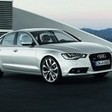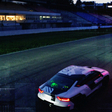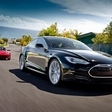|
Send this page to a friend! Fill in the form bellow | ||
Safety and Technology
Volkswagen Developing Next Generation 10-Speed DSG
Super efficient diesel also on the way
Volkswagen VolkswagenGermany, 1938 > present98 models
VolkswagenGermany, 1938 > present98 models
9654 photos
31 videos
Group Chairman Dr. Martin WInterkorn announced future technology plans during the International Vienna Motor Symposium. The company is working on a 10-speed dual clutch gearbox, plug-in hybrids and diesel engines that produce 134hp per liter.
In the nearer term, Volkswagen will introduce natural gas-fueled cars, hybrids and pure electric cars to work toward having average fleet emissions of 95g/km of CO2 by 2020. It will also offer an electrified version of every class by that time.
Natural gas offers particular advantages with the technology already being ready for market and offering low emissions. A natural gas-fueled Golf![Volkswagen Golf Gen.7 [VII] Volkswagen Golf Gen.7 [VII]](/img/series/65/sqr112_9465.jpg) Volkswagen Volkswagen Golf Gen.7 [VII]Germany, 2012 > present363 versions
Volkswagen Volkswagen Golf Gen.7 [VII]Germany, 2012 > present363 versions
458 photos
and A3![A3 Gen.3 [Typ 8V] A3 Gen.3 [Typ 8V]](/img/series/18/sqr112_9418.jpg) Audi A3 Gen.3 [Typ 8V]Germany, 2012 > present275 versions
Audi A3 Gen.3 [Typ 8V]Germany, 2012 > present275 versions
591 photos
will be on the market in the next 12 months.
“We need to make the public even more aware of the benefits of natural gas engines. Everyone needs to play their part in this: carmakers, politicians and the fuel industry," said Dr. WInterkorn.
He said that Volkswagen's latest MQD platform will support cars with all of these fuel options.
In the medium term, Winterkorn sees plug-in hybrids as the ideal option. The cars will have electric ranges of up to 50km. The first two plug-in hybrids from Volkswagen Group will be the Porsche Panamera and Audi A3 e-tron. Next, VW will add plug-in versions of the Golf, Passat![Passat Gen.7 [B7] Passat Gen.7 [B7]](/img/series/76/sqr112_8276.jpg) Volkswagen Passat Gen.7 [B7]Germany, 2011 > 2014115 versions
Volkswagen Passat Gen.7 [B7]Germany, 2011 > 2014115 versions
306 photos
2 videos
, Audi A6 Audi A6 Gen.4Germany, 2011 > present93 versions
Audi A6 Gen.4Germany, 2011 > present93 versions
218 photos
1 video
and Porsche Cayenne Porsche Cayenne Gen.2Germany, 2010 > 201727 versions
Porsche Cayenne Gen.2Germany, 2010 > 201727 versions
87 photos
2 videos
.
Winterkorn also discussed future diesel engines that will produce 134hp per liter thanks to new innovations in the valve train and a high-pressure fuel injection system.
“Since the year 2000, we’ve reduced the fuel consumption of our TDI and TSI engines by more than 30 per cent. I’m convinced that by 2020 we can achieve further increases in efficiency of around 15 per cent," said Dr. WInterkorn.
Encyclopedia |
Contribute
latest articles



popular articles








